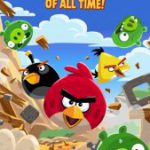Best Apps for Kids
Kids today are mostly on their smartphones, iPads, or tablets. Parents often find them difficult to manage or organize screen time for them.
On some occasions, parents find it challenging to have their kids preoccupied if they were not on their devices.
Thankfully, we have a list of apps that could be very helpful for parents and their kids. This list includes screen time management, educational games, interactive stories, digital libraries, and more.
Check out below the best apps for kids and the experiences of some parents who have tried or used the app for their children.
Digital Library
Hoopla

“hoopla digital, the groundbreaking digital library service. Available for free at your local public library – which offers content and programming at no cost – all you need is a valid library card.”
Pros: “Offered by your local public library, hoopla allows you to borrow movies, music, audiobooks, ebooks and more, including lectures from One Day University, the leading adult learning edutainment company featuring hundreds of lectures from America’s most renowned college professors, ranging in topics from politics, science, literature, and history.“
Tia Harris – MWW Group
Educational Games for Kids
Lego Duplo World
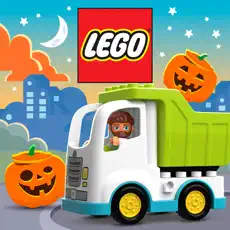
“We’re not advising you to switch all of your child’s physical toys over to digital ones. But just as Duplo excels at enhancing dexterity in the real world, also can this app aid young children in using touchscreens. You can access Number Train for free, which includes a substantial plastic train and games focused on counting, color sorting, and using animal piece“
Joanne King – Elevate with ICMP
Educational Music Game
Tiny Orchestra
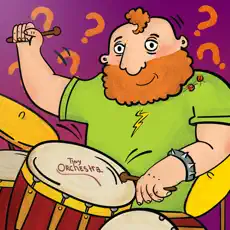
“Like the thought of your child playing Beethoven’s Fifth at some point? Tiny Orchestra provides a place to start. Within the first of its 3 mini-games, a variety of musical instruments are displayed; poke each one, and it will start to play. The next exercise is ear training, a multiple-choice test in which kids have to guess what song is playing in order to earn up to three stars. When your child is ready, they can drag and drop actors onto the stage, combine them with other actors, and create their own symphony performance. Simple, but effective and lighthearted fun.“
Dan Close – We Buy Houses In Kentucky
Puzzle Game
Labyrinth City
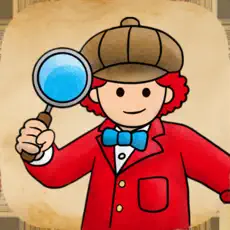
“The Maze Detective books by Hiro Kamigaki are delightful works of art that are inventive finding books brimming with minute details. Surprisingly, this gaming adaption doesn’t mimic the experience on screen as Hidden Folks did. Instead, it combines observation with pathfinding. You must guide the titular labyrinth investigator through mazes while on the hunt for evildoers on each level. You can examine your surroundings along the way to uncover hints, hidden items, and mini-games.“
Dean Lee – Sealions
Educational Plant App
Namoo
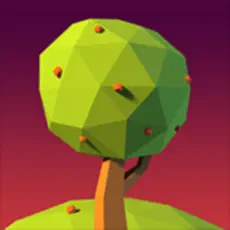
“Kids typically enjoy being outside, which is why many parents return after a walk through the woods to find a bunch of pine cones and little, grimy handprints in their home. However, the weather doesn’t always favor children. You can use Namoo to feed your interest in plants when it’s acting uncooperatively. This interactive book contains clear text and lovely basic imagery. The scenarios, include a probable plant cell that emits sci-fi beeps and a fertilization step that results in an angular, futuristic-looking apple that you worry might shatter your teeth if you bite into it, most crucially, inspiring play and discovery.“
Hamza Usmani – Believe Money
Educational Games and Books
Khan Academy Kids
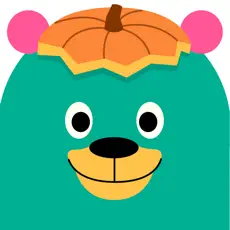
“Khan Academy is the creator of this app. Through games, stories, and videos, five characters teach math, language, and literacy to kids of all ages. A variety of educational books, videos, and coloring pages are available to users of the Khan Academy app. You can also choose a personalized learning pace for each child based on his age and package of classes.“
Pros: “It is based on mastery – based teaching and we can learn without any sort of pressure.“
Cons: “Some chapters do not have exercises and thus, you will not get an idea about where you stand.“
Max Shak – Survival Gear Shack
Learning Program for Kids 2-8 years old
ABC Mouse app

“As a parent, I use the ABC Mouse app to help my 4-year-old son with his education. The app is tailored to kids his age, and it covers a wide range of topics that he’s currently learning in school. The interactive games and activities on the ABC Mouse app help him learn in a fun and engaging way. Additionally, the app rewards him with virtual badges and points when he completes lessons, which encourages him to continue learning.“
Pros: “The app is colorful and engaging and includes many different games and activities.“
Cons: “Some parents have also reported that the app crashes occasionally.“
Victoria Taylor – Best Case Parenting
Study Timer
Study Bunny

“With my research in this field, I have to go with an app called *Study Bunny*. It’s a study companion application that makes studying much more fun. It awards your child points for the time spent while studying. These points can later be exchanged to upgrade and customize the bunny’s looks and other visual parameters. All the kid needs to do is, clock in when they start studying and clock out when they’re done. It also helps keep a solid balance between studying and playtime and ensures that the child feels *rewarded* for his hard work.“
Kaitie Weaver – Helcim
Screen Time Family Locator GPS
OurPact

“My kid is 12 years and the favourite app I use on him is OurPact. OurPact is an app that lets you set up a schedule for when your kids can use their devices, and it also lets you block certain apps and websites. I love that I can see when my kids are using their devices and for how long, and I can also set limits on their screen time.”
Pros: “OurPact is a great way to keep track of your kids’ device usage and make sure they’re not spending too much time on their devices.”
Cons: “One potential downside of using OurPact is that if it’s used to set limits on devices and then those limits are not adhered to, it could create a sense of mistrust or resentment between parents and children. In order to avoid this, it is important to be clear about expectations and to follow through with any consequences that are set up in OurPact.“
Brandon Wilkes – The Big Phone Store
Digital Reading Platform
Epic
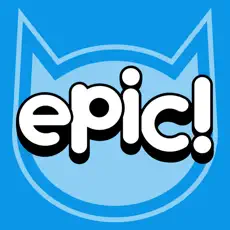
“This is an app that I see my little niece use all the time, and it is ideal for kids that love reading children’s books, but that is on the go. The app is full of age-appropriate books, and there are features such as “read to me” that creates a fun storytelling experience.“
Shane Paarman – Awesome Stuff 365
Early Learning App
Busyshapes
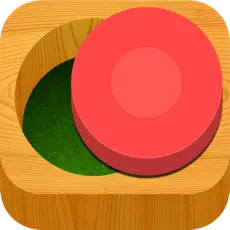
“I love this app because there are no directions which toddlers can’t fully handle. Instead, everything is child-directed. Busy Shapes supports the Montessori philosophy of independent, experiential learning. As a result, it’s ideal for young children who are just beginning to use technology. Through learning about how items relate to one another and how to handle them, the app is intended to help young children develop their logic and reasoning abilities.
Playing Busy Shapes is easy. Children must match the shape of the object with the appropriate hole by dragging it into it. Eventually, another object and hole will appear in a different location.“
Pros: “Simple to use for smaller hands“
Cons: “Does Not identify the name of the shapes.“
Christian Dawson – Everwallpaper
Digital Storybook
Kidoko My Emotions
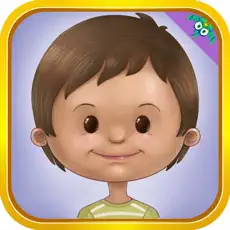
“Kidoko My Emotions teaches the kids how to identify emotions. I love it because it teaches my baby how to express his emotions. Basically, you will just watch a kid doing different kinds of emotions, and he says what kind of emotion he feels”
Pros: “What I love about it is that it helped me to deal with my toddler’s tantrums. Whenever my toddler is angry, and at the height of his tantrums, I’ll ask him. Are you mad? Show mommy how to get mad. Then he will do the mad thing, and it helps him soothe his feelings a little bit. Identifying their emotions is the first step of handling/managing their feelings, and this app is a HUGE help.”
Cons: “There are limited emotions included in the app, and kids are prone to boredom if you repeat it again and again.“
Arvie Narido – Gift Rabbit
Games for Emotional Strength
Mightier

“I am a parent of four. Three of my children use Mightier – ages 11, 8 and 6. They use it for fun and enjoyment, and we rely on it for help teaching them to better understand and regulate their emotions.
Mightier is a video game app that relies on clinically proven methods to help kids ages 6-14 better regulate their emotions – whether it’s anxiety, ADHD, autism, or other mental health factors.“
Pros: “It uses biometric feedback (measuring players’ heartrates) to change the games’ difficulty level. Staying calm or calming down is rewarded with easier play. Clinical tests from Harvard and two top Boston hospitals showed it to reduce outbursts by 62 percent, oppositional behavior by 40 percent, and family stress by 19 percent. 87% of families report positive behavior change within 90 days.“
Steve Saleeb – Mightier
15 Minutes Adventure for Busy Family
My Gnome on the Roam

“I’m excited to introduce you to a life changing/family changing app. My Gnome on the Roam: 15 Minute Adventures for Busy Families is our magic wand to help families. The New York Times called it an anti-app…designed to help create stronger, happier kids, and more present and connected with adults. These are perfect adventures to help families survive the summer and make the most of their weekend travels and everyday fun.”
Pros: “One tap gives you a daily idea. Each idea is stored in the app history … which quickly becomes a library filled with 15-minute adventure ideas for every day of the week.“
Anne Armstrong
Phonics and Reading Game
Teach Your Monster to Read
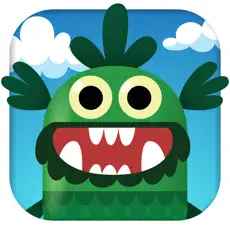
“Teach Your Monster to Read is a really great app for kids because it’s not only educational, but it’s filled with fun games, graphics and videos that help to keep your child entertained and having fun.
Overall this app is a great one for kids, but it does cost money. This might not be something many parents want to spend money on, but it does allow for a pleasant experience because there are no ads and it gives your child access to a lot of learning materials.”
Pros: “This app is used by many parents and teachers alike to encourage fun lessons without it being daunting for the child. This app can help to teach your kids to read, learn phonics and math but uses monsters, bright colors and videos to keep your kid from becoming bored, and increases their interests.
This app also offers a choice to read for fun, which isn’t necessarily lesson based and instead is meant to encourage kids to read for pleasure. They have quirky characters, and over 70 books to choose from to keep your kids entertained.“
Isabela Calil – TEG London
App for Kids to Learn Spanish
The Spanish Schoolbus
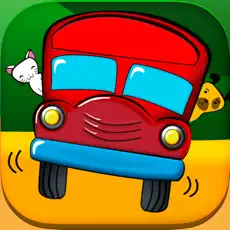
“We love “The Spanish Schoolbus” app. It really helped our kids (4 and 7) get started learning Spanish.
Honestly, I’ve used it myself to learn a few new words! We tried a few other apps, but I needed something that worked for early-readers. This works for young kids who are learning by listening and by sight words.
We spent 5 months traveling in Spanish speaking countries, and ended up getting the kids in-person Spanish lessons in Argentina for a month, but this app really got them motivated and gave them a base. I’ve had my daughter correct my pronounciation on some words :)”
Pros: “It’s gamified, so they try to earn badges in each vocabulary section (numbers, clothes, etc). Its basic, and doesn’t really move the kids into phrases or verbs, but it gives them a great base in vocabulary, and got them excited to learn more Spanish.“
Cynthia Matthews von Berg – Sharing the Wander
Reading Apps for Kids
Reading Eggs
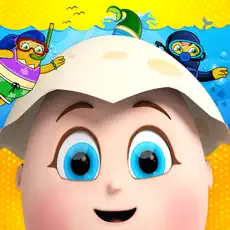
“detailed and personalized math and ELAR lessons. This program keeps track of the children’s progress and sends you a report. The kids love the games and they are of high quality. Children can start at their appropriate level through taking a test. You can add multiple children on the same account.“
Beth McCarter
Sleep and Meditation for Kids
Moshi
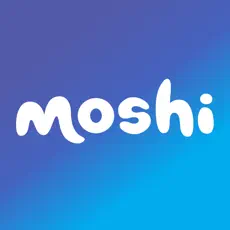
“My daughter has always had trouble falling asleep. She may have ADHD (I have recently been diagnosed) and one of the symptoms is poorly regulated sleep cycles. The Moshi app is the only thing that helps her get to sleep. We’ve been using it for almost three years now. Not only does Moshi have sleepy-time stories that guarantee our daughter falls asleep at the drop of a hat, but it also has tons of meditations and other Social Emotional Learning videos.“
Beth McCarter
Video App for Kids
YouTube Kids

“According to me, YouTube Kids is the best app for kids. In this app, your children will get to learn as well as *share their creativity* by starting a channel under the guidance of an adult. You will find every field on this app like music, games, dance, math, science and so much more. I’ve seen many kids learn how to dance and sing through this app. YouTube Kids is one of the safest and full-of-knowledge apps. By using this app, your kid will definitely develop some *good hobbies* or learn something unique.“
Nathan Hughes – Art Ignition
Multiplication Table and Arithmetic Games
Quick Math
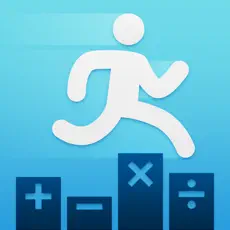
“My kid loves the app Quick Maths. Since she was a toddler, I found that she loves counting and such activities. Hence, I really searched for an app that can help her develop her math skills. This is when I discovered Quick Maths. This app has helped her practice her math skills, improve her counting speed, and so much more. She even learned the concept of division on her own through this app. With that said, I am very happy with this and I highly recommend this app. My child is now 6 years old.“
Veronica Thompson – Everyday Power
Brain Training Games
Thinkrolls
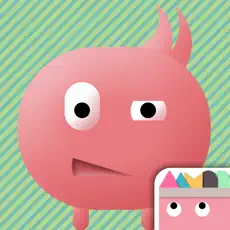
“Thinkrolls is a series of educational games that are actually enjoyable for the kids to play, rather than feeling like a chore. It teaches them about the basics of coding and problem solving, which I believe are two essential skills for anybody in the modern day. That’s why I want them to adopt these skills as early as possible in life.“
Kathleen Fletcher – HerBones
Interactive Books and Videos
Skybrary
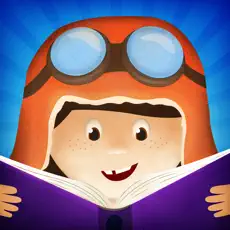
“Skybrary is my favorite app for my children, who are 12, 10, 5, 3, and 2 years old. Each child can download a virtual backpack of books. Then, when we travel, and they don’t have internet access, they can open their backpack and read the books they saved.When we’re home, they can read any books in the library. My kids often find a book associated with their interests and then go from there, finding related books and gaining a well-rounded perspective. I love the selection of books they have. I don’t have to worry about them finding something that’s not age appropriate. Unfortunately, the app only offers three backpacks, so if you have more than three children, as I do, some of them have to share a backpack. It costs $40 annually, but I think it’s worth it.“
Sara Routhier
Interactive Story Platform
Hellosaurus
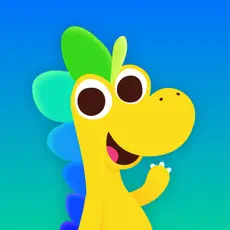
“In this day and age, Gen Z and Gen Alpha have or are growing up with technology around them, and it is our responsibility as adults to use these technological advancements to their benefit.
With the first month free and a $3.99/month subscription followed afterward, Hellosaurus offers interactive games and videos that not only entertain the little ones but also teach them soft skills.
Interactive games and videos with vibrant colors and sounds can cause over stimulation in kids which may result in problems with sleeping, attention issues, and even emotional issues. Additionally, spending a large amount of time in front of a screen can decrease a child’s need for social interaction and harm their social skills. It is important to remember that while these types of apps are very beneficial, their usage should still be monitored to avoid such problems arising.”
Pros: “The app teaches kids between the ages 2-8 years old, how to be thinkers, collaborators, and leaders. It does so, through the usage of cameras, motion sensors, microphones, and touch screens alongside reviewed and approved content.“
Julia Wysocka – HiJunior


